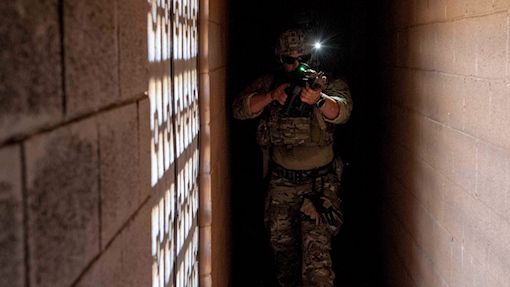Episode 67
How To Think Like A Tactician

We’ve been building up to this concept to help raise the lowest common denominator in tactics, survival, and self-defense.
At Tactical Tangents, we talk a lot about “People Ideas Hardware” and how to apply that formula to making critical decisions in tactical situations. The point of this podcast is to help you, the “tactician,” apply critical thinking and problem solving to things like shooting, driving, fighting, and other skills so you can overcome any survival situation you find yourself in. That might be a concealed carry/self-defense scenario, it could be tactical situations in law enforcement or the military, or how you approach disaster preparation. Whatever the situation, your job needs to be focused around these core principles so you can fight effectively and win.
Like what we’re doing? Head over to Patreon and give us a buck for each new episode. You can also make a one-time contribution at GoFundMe.
Intro music credit Bensound.com
CLICK BELOW TO SUBSCRIBE NOW ON YOUR FAVORITE PLAYER
THANK YOU TO OUR SPONSORS! PLEASE GO CHECK THEM OUT
Recent Episodes
What’s up with the beards? Setting and Enforcing Standards
Green Berets have to work with a different rule book than the troops guarding nuclear weapons—and for good reasons. We explore the balance between strict adherence to rules and the often necessary flexibility to go off-script in tactical operations and your organization’s culture.
“Your Children Are Not Safe”: DC Beltway Snipers
In October 2002, a 17 and 41 year old carried out a series of serial murders, killing 10 and wounding 3 others in what were described as random attacks against people doing every day tasks like pumping gas and mowing their lawn. We cover lessons from this large scale, multi-agency investigation with takeaways for individual cops and police leaders related to public relations, investigative rigor, and interagency cooperation.













0 Comments